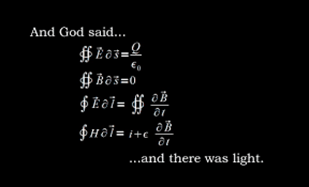Why Study Mathematics?

Why study mathematics? Good question - one asked every year by at least one student. What, actually, is math? Is it arithmetic, algebra, geometry, calculus, statistics? While these are a few of the branches of mathematics (and there are many more), the branches don’t define math. And unfortunately, the dictionary definition is not captivating. Merriam-Wester defines mathematics as “the science of numbers and their operations, interrelations, combinations, generalizations, and abstractions and of space configurations and their structure, measurement, transformations, and generalizations''. If you didn't take the time to figure out exactly what that means, don't worry--neither did I. So, how can we bring more life to the definition of mathematics, to our preconceived ideas about “math,” to see math as it really is, and be inspired to study?
Ultimately, we labor (in this case, learn) in order to understand God, the world, and each other. Let’s consider another definition of mathematics by James Nickel, author of Mathematics: Is God Silent?, to work toward developing a more vibrant perspective of math. James posits that mathematics is “an abstract formulation of ideas suggested by the patterned structure of God’s creation”. He further expounds:
It is the artful use of the God-given reasoning processes to make connections...and then to infer and deduce new facts about creation, i.e., to discover the wisdom of God in Christ hidden in creation (see Proverbs 25:2). It is a series of significant assertions about the nature of creation, and its conclusions impact almost all the arts and sciences (...in the context of aesthetical beauty or dominion mandate...).
God has given us specific revelation, the Bible, and general revelation, His creation, to reveal himself to us. Mathematics is a key instrument for the study of creation, through which God’s invisible qualities – His eternal power and divine nature are understood (Romans 1:20). In other words, math enables us to learn about God in ways that would otherwise be hidden to us.
At our classical Christian school, we embrace Plato’s proposition that mathematics provides a window to the soul and orders the mind. Put differently, we are developing logical minds as we acquire mathematical knowledge. Through this effort we allow our soul to take-in and experience more beauty, goodness and truth. Granted, it takes constructive imagination and rigorous practice. But there is value in doing hard things. Pierre Berdeaux, in The Logic of Practice, tells us that the way we construct our world is formed by our habits. Since God created our brains to adapt and change through habits, every thought we think alters the connections within our neural network. Our habits of thought are important. Through the study of mathematics, we are rewiring our brains to experience creation and the God who made the world and us in new and different ways. There is intrinsic beauty and complexity in mathematics. It parallels God’s intrinsic beauty and complexity. But even if you don’t appreciate the beauty in the mathematical equations for light, for example, the four equations that unfold to describe the self-perpetuating, life-giving, self-sustaining energy of particle-like electromagnetic wave packets that cannot be destroyed, and even if you do not marvel at the eloquence of these symbols and variables that provide the models for power generation, electric motors, wireless communication, lenses and radars, you will still know God better.
Looking for more? Read our Grand Tour blog and Athletics blog!

